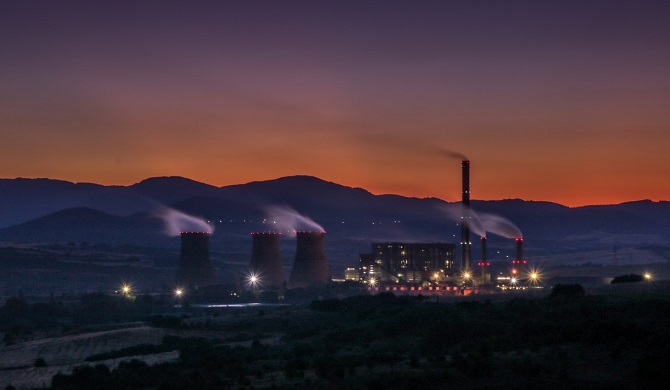The influence and development of the “Atoms for Peace” nuclear programme at an international symposium
The influence and development of the “Atoms for Peace” nuclear programme at an international symposium
The meeting “Atoms for Peace and Europe: Nuclear Energy Networks in Europe and around the Globe”, within the framework of the HoNESt research project, is to take place on the Ciutadella campus on 28 and 29 May, with the presence of researchers from Europe, Asia and the USA.
On 8 December 1953, nearly 65 years ago, the U.S. president, Dwight D. Eisenhower, opened “Atoms for Peace” with a speech before the United Nations, with the aim of promoting a wide range of peaceful nuclear programmes in the fields of agriculture, industry, medicine, transport and in the production of energy, among others. With this initiative, the U.S. Government wanted to reduce the growing tensions caused by the nuclear arms race and the Cold War, and indirectly, to promote the country’s business.
 On 28 and 29 May 2018, the Auditorium of the Mercè Rodoreda building on Pompeu Fabra University’s Ciutadella campus will play host to the international symposium “Atoms for Peace and Europe: Nuclear Energy Networks in Europe and around the Globe”. This meeting, in the framework of the European project HoNESt, will focus on the historical, scientific, national and international ramifications of the nuclear programme “Atoms for Peace” from a comparative perspective, with the participation of academics from Europe, Asia and the United States.
On 28 and 29 May 2018, the Auditorium of the Mercè Rodoreda building on Pompeu Fabra University’s Ciutadella campus will play host to the international symposium “Atoms for Peace and Europe: Nuclear Energy Networks in Europe and around the Globe”. This meeting, in the framework of the European project HoNESt, will focus on the historical, scientific, national and international ramifications of the nuclear programme “Atoms for Peace” from a comparative perspective, with the participation of academics from Europe, Asia and the United States.
The symposium, which is open to the public, will be inaugurated (28 May, 9.00am) by Albert Presas, researcher of the research group Nexus between science, culture, politics, religion and society (NEXUS) of the Department of Humanities at UPF and one of the scientists in charge of the meeting, together with Paul Josephson, professor of History at Collby College (USA) and of the Tomsk State University and the Moscow Engineering and Physics Institute, MIFI (Russia), and Matthew Adamson, of McDaniel College, Budapest.
Transnational, bilateral and multilateral connections between the different atomic programmes; or the programmes that emerged in Czechoslovakia, Italy, Hungary, Korea and Vietnam, France and Spain, among other countries, are among the main themes that the symposium will be addressing. It will involve researchers from centres such as the Budapest University of Technology and Economics, the Diplomatic Academy of Vietnam, and the universities of Turin, Oregon State, Sorbonne, Yale, Charles of Prague, the Public of Navarra or the Polytechnic of Lappeenranta.
What social, political and economic implications did “Atoms for Peace” have?
The participants will base their discussion around questions such as the following: how important was governments’ financial and regulatory support for “Atoms for Peace”? How did governments and industry involve the society of the time? What status did the new nuclear states achieve? What did “Atoms for Peace” represent with regard to the transnational flow of raw materials, technologies, expertise and recruitment programmes? What industrial impact did the new nuclear programmes established in North America, Europe and the Soviet Union have?
The Symposium will show how some of the results of the initiatives of “Atoms for Peace” were the great movement of nuclear material, such as enriched uranium; the creation of an international agency to monitor the use of these materials (which became a reality in 1957 with the creation of the International Atomic Energy Agency, IAEA), and the establishment of international scientific meetings aimed at promoting the international exchange of scientific knowledge and information.
The goal of the organizers is for the communications given at this symposium to be published in a volume by a prestigious publisher or an impact scientific journal. The aim is for this to be the first step towards presenting the scientific data generated by the HoNESt project to science academia, as a point of written support to the history of the nuclear age.
History of Nuclear Energy and Society (HoNESt) is a project funded by the Euratom Research and Training Programme (2014-2018), in the framework of the Horizon 2020 programme. It consists of an interdisciplinary consortium of 23 research institutions from throughout Europe, including UPF, coordinated by professor Albert Presas. From a pioneering interdisciplinary and integrated approach, the project aims to improve the knowledge of the dynamics established between nuclear development and society during the last sixty years and to reflect on future energy sources.
